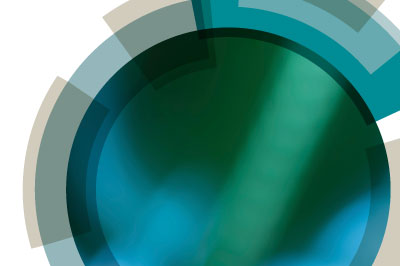The unique behavior of compounds confined at interfaces can be very different from those in bulk situations. Advances in methods and their understanding for determination of the structure and chemical bonding at surfaces is central to continued progress in the field. Among the questions that need answering are:
How is chemical reactivity modified at surfaces and how can we optimise it for selective and efficient processes?
Interfacial processes are also at the heart of the function of many materials, the properties they exhibit and chemical reactions they can perform. This Discussion will focus on the understanding of the interaction of molecules with surfaces and their subsequent organisation, reactivity, or property from both experimental and theoretical perspectives.
Find out more about Faraday Discussions in this video:
How is chemical reactivity modified at surfaces and how can we optimise it for selective and efficient processes?
- How reliable are the actual methods for determining molecular conformation at surfaces?
- How can we control diffusion of molecules at surfaces in order to influence growth?
- Can two-dimensional structure be correlated with three dimensional order?
Interfacial processes are also at the heart of the function of many materials, the properties they exhibit and chemical reactions they can perform. This Discussion will focus on the understanding of the interaction of molecules with surfaces and their subsequent organisation, reactivity, or property from both experimental and theoretical perspectives.
Format
The Faraday Division have been organising high impact Faraday Discussions in rapidly developing areas of physical chemistry and its interfaces with other scientific disciplines for over 100 years. Faraday Discussions have a special format where research papers written by the speakers are distributed to all participants before the meeting, and most of the meeting is devoted to discussing the papers. Everyone contributes to the discussion - including presenting their own relevant research. The research papers and a record of the discussion are published in the journal Faraday Discussions.Find out more about Faraday Discussions in this video:
Themes
- Supramolecular effects in self-assembled monolayers. This session will focus on the effects that intermolecular interactions have on chemisorbed layers on surfaces, and what the key factors are in being able to determine the structure of monolayers. The interpretation of data from surface characterization techniques will be contrasted with theoretical predictions of the orientation of chemisorbed molecules. We will also explore the role that these factors as well as the order in the layers have on their behaviour, in any function that they may have (binding, electron transport, etc.).
- Supramolecular systems at liquid-solid interfaces. The reversible adsorption of molecules to surfaces offers multiple opportunities, from the sensing of solution borne analytes to the assembly of functional molecular architectures under conditions of strict self-assembly, where multiple components can be combined in order to generate complex supramolecular systems. This session will be devoted to the controlled assembly of complex supramolecular systems on surfaces and the role that chirality has in physisorbed layers.
- Preparing macromolecular systems on surfaces. One of the most burgeoning areas in surface based molecular systems is the formation of macromolecular compounds on surfaces from small molecule adsorbates. The roles that surface coverage, monomer adsorption profile and monomer and oligomer diffusion on the surface have on the outcomes of the polymerisation reactions are being discovered continuously. Molecular modelling has a vital role to play. This session will highlight what has been achieved and what are the gaps in our knowledge, as will the possibilities of characterising polymer structure, bonding, and function.
- Probing properties of molecule-based interface systems. Adsorption of molecules at interfaces can influence their chemical, biological, electrical or opical or magnetic properties dramatically. This final session will be devoted to the latest advances in the understanding of the effects that adsorption has on molecular behaviour from both an experimental and theoretical perspective. We will discuss the opportunities that these effects have.
Aims
This meeting aims to bring together leading scientists working on surface structuring with molecules (pore formation, chirality, etc.), surface reactivity (for making macromolecules, or modifying molecules), characterisation (with probe microscopies and spectroscopies), measurement of properties (electrical, chemical and magnetic) and modelling all of these features. It will address the interdisciplinary scientific problem of how intermolecular interactions determine properties at interfaces.Supporting Division
Organised by the Faraday Division in association with the Materials Chemistry Division.Deadlines
Useful links
Downloads
- Programme
- Preprints - Session 1: Supramolecular effects in self-assembled monolayers
- Preprints - Session 2: Supramolecular systems at liquid-solid interfaces
- Preprints - Session 3: Preparing macromolecular systems on surfaces
- Preprints - Session 4: Probing properties of molecule-based interface systems








